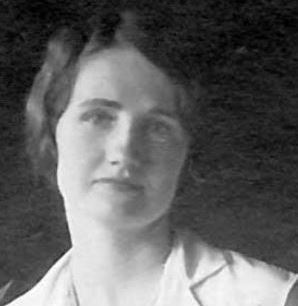The number one Country song is “Walk My Way” by Breaking Rust. It is the product of AI.
This means that Country music fans have surrendered their cultural autonomy to robots—they are robotic listeners, machinery has occupied the space between their ears.
During a previous phase, algorithms had self-trained to automatically detect our supposed “preferences” for music in 90 seconds, based on biometric, consumer and cultural attributes.
Now we are being so completely cut out of the process, that there are no human musicians needed, nor any human technicians, the whole process of production and marketing can be performed by non-human, artificial-intelligence agents.
This takes us back to a time when human involvement in music was first being supplanted by electronic means of production and distribution, during the interval from the invention of radio in 1923 to the release of the first sound-cinema “talkie” in 1929.
The question is, were people more authentically musical, before or after the development of electronically augmented music?
This was a dividing line between much greater movements of civilization and culture, than the mere, chronologically-local development of electronic distribution of musical sound.
That dividing line more closely resembles the change from oral poetry to literacy. It involved the Homeric epic poems, which are considered to have been transcribed over a five day periods sometime between 750 and 700 BC. The archetypic image of Homer as blind testifies to the improvisatory oral character of the epic poetry, which, according to early twentieth century studies of Serbo-Croatian coffee house poetic performance by Milman Parry and Albert Lord, consisted of hundreds of thousands, to up to a million, traditional poetic phrases called “formulas”.
A highly adept improvisatory poet would reach into his deep memory repository of those formulas, reconstructing the narration of a poem from those aggregated, memorized phrases—literate people can only remember a few things they write down, non-literate people could memorize whole epics, it was estimated that if every copy of the Baghavad Gita were destroyed, it could instantly be reconstructed completely from memory by any one of millions of people—with the audience esthetically judging the success of the performance. The idea of poetry in our more recent, literate milieu, of the poet carefully preparing the text in the written format, did not pertain to the oral poet’s technique, which largely consisted of extemporaneous arrangements of selections from that voluminous aural archive of poetic formulas.
Students of ancient Greek culture, not necessarily at English universities, but more commonly centered on Greek Orthodox Church parishes, study the Homeric epic poems as the foundation of Western Civilization. It was set up in the 8th century before Christ.
We know of an historically recent example, in the improvisatory music of Art Tatum, the blind poet of the piano, who probably only developed a few hundred of his own “licks”, in comparison with the enormous catalogue of melodic and rhythmic phrases he stored in his head, most having been based on what he heard over his lifetime, from his childhood.
Now some people whose names we know, lived during the more recent, epochal change from human to electronic-synthetic music. My own Mother was born in 1910. In her third year, she was accustomed to getting her entertainment by going to her relatives’ house, where someone played a piano and everyone who was not deaf or tone-deaf, sang; the average person knew the lyrics to 200 songs; there were 300 piano brands when my Mother was 3; there were ten 1-million sheet-music printings every year, with many more in lower denominations, but most music sung in homes, among friends and local society, was traditional, not top-sellers.

The middle girl, on the right, Betty, took the baby to the movies, stayed through several performances, forgot the time, and got in trouble with the frantic parents who couldn’t find the baby.
The music background of the clip, is what music was, prior to radio and talkies, people singing it all themselves and having a terrific time into the bargain.
The other leg of my Mother’s musical experience, was set across a breach in the cultural divide, over in the electronically-augmented sphere of music. Whereas in 1913 she herself was singing with her own voice at her cousins’, a mere twenty years later, in 1933, at the age of 23, she was going to talkies to hear Jeanette MacDonald, Nelson Eddy and Ramon Navarro sing light-opera, in movies with only the most superficial plot development.

Music in my Mother’s toddlerhood, was singing with your own voice; in her young-girlhood, it was sitting in a dark movie theatre, letting others do your music for you.
I could hear evidence of my Mother’s early childhood experience with direct singing, when in her 60s, she would lampoon the Fifth Dimension’s 1967 popular song hit, “Up, Up and Away (in My Beautiful, My Beautiful Balloon!)”, which she found ridiculous, whooping her voice up on “Up, Up and AWAY!!!” high In the chorus, but still demonstrating that she could carry a tune.
Now most of the people who have made the AI generated, “Walk My Way” by Breaking Rust, the number one Country song, would have no way of singing the actual lyrics, or actively participating in the music, other than consuming it as passive, drooling thralls.
This is the culmination of developments that were long predicted in speculative fiction. We are used to the obsolescence of humanity itself from the early “Terminator” film franchise. One of the earliest, most influential science-fiction stories in this provenance of humanity’s imminent extinction, in which nearly our only remnant evidence is the presence of AI, robots or artificial intelligent life, the humans who created them being on the verge of extinction, is “The Last Evolution” (1932) by John W. Campbell, Jr.